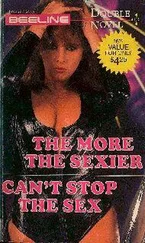His intellect is impressive, too. Though he believes university educations are overrated (because they don’t teach you about your emotions and your body, he says) and has been slow to write his next book (because no one reads anymore, according to Tony), he’s managed to assimilate the work of academic psychologists and package it into one hell of a show, with genuine insights the audience can make their own.
Part of Tony’s genius lies in the unstated promise that he’ll let the audience share his own journey from inferiority to superiority. He wasn’t always so grand, he tells us. As a kid, he was a shrimp. Before he got in shape, he was overweight. And before he lived in a castle in Del Mar, California, he rented an apartment so small that he kept his dishes in the bathtub. The implication is that we can all get over whatever’s keeping us down, that even introverts can learn to walk on coals while belting out a lusty YES.
The second part of the Tony state of mind is good-heartedness. He wouldn’t inspire so many people if he didn’t make them feel that he truly cared about unleashing the power within each of them. When Tony’s onstage, you get the sense that he’s singing, dancing, and emoting with every ounce of his energy and heart. There are moments, when the crowd is on its feet, singing and dancing in unison, that you can’t help but love him, the way many people loved Barack Obama with a kind of shocked delight when they first heard him talk about transcending red and blue. At one point, Tony talks about the different needs people have—for love, certainty, variety, and so on. He is motivated by love, he tells us, and we believe him.
But there’s also this: throughout the seminar, he constantly tries to “upsell” us. He and his sales team use the UPW event, whose attendees have already paid a goodly sum, to market multi-day seminars with even more alluring names and stiffer price tags: Date with Destiny, about $5,000; Mastery University, about $10,000; and the Platinum Partnership, which, for a cool $45,000 a year, buys you and eleven other Platinum Partners the right to go on exotic vacations with Tony.
During the afternoon break, Tony lingers onstage with his blond and sweetly beautiful wife, Sage, gazing into her eyes, caressing her hair, murmuring into her ear. I’m happily married, but right now Ken is in New York and I’m here in Atlanta, and even I feel lonely as I watch this spectacle. What would it be like if I were single or unhappily partnered? It would “arouse an eager want” in me, just as Dale Carnegie advised salesmen to do with their prospects so many years ago. And sure enough, when the break is over, a lengthy video comes on the mega-screen, pitching Tony’s relationship-building seminar.
In another brilliantly conceived segment, Tony devotes part of the seminar to explaining the financial and emotional benefits of surrounding oneself with the right “peer group”—after which a staffer begins a sales pitch for the $45,000 Platinum program. Those who purchase one of the twelve spots will join the “ultimate peer group,” we are told—the “cream of the crop,” the “elite of the elite of the elite.”
I can’t help but wonder why none of the other UPWers seem to mind, or even to notice, these upselling techniques. By now many of them have shopping bags at their feet, full of stuff they bought out in the lobby—DVDs, books, even eight-by-ten glossies of Tony himself, ready for framing.
But the thing about Tony—and what draws people to buy his products—is that like any good salesman, he believes in what he’s pitching. He apparently sees no contradiction between wanting the best for people and wanting to live in a mansion. He persuades us that he’s using his sales skills not only for personal gain but also to help as many of us as he can reach. Indeed, one very thoughtful introvert I know, a successful salesman who gives sales training seminars of his own, swears that Tony Robbins not only improved his business but also made him a better person. When he started attending events like UPW, he says, he focused on who he wanted to become, and now, when he delivers his own seminars, he is that person. “Tony gives me energy,” he says, “and now I can create energy for other people when I’m onstage.”
* * *
At the onset of the Culture of Personality, we were urged to develop an extroverted personality for frankly selfish reasons—as a way of outshining the crowd in a newly anonymous and competitive society. But nowadays we tend to think that becoming more extroverted not only makes us more successful, but also makes us better people. We see salesmanship as a way of sharing one’s gifts with the world.
This is why Tony’s zeal to sell to and be adulated by thousands of people at once is seen not as narcissism or hucksterism, but as leadership of the highest order. If Abraham Lincoln was the embodiment of virtue during the Culture of Character, then Tony Robbins is his counterpart during the Culture of Personality. Indeed, when Tony mentions that he once thought of running for president of the United States, the audience erupts in loud cheers.
But does it always make sense to equate leadership with hyper-extroversion? To find out, I visited Harvard Business School, an institution that prides itself on its ability to identify and train some of the most prominent business and political leaders of our time.
The Myth of Charismatic Leadership: Harvard Business School and Beyond
The first thing I notice about the Harvard Business School campus is the way people walk. No one ambles, strolls, or lingers. They stride, full of forward momentum. It’s crisp and autumnal the week I visit, and the students’ bodies seem to vibrate with September electricity as they advance across campus. When they cross each other’s paths they don’t merely nod—they exchange animated greetings, inquiring about this one’s summer with J. P. Morgan or that one’s trek in the Himalayas.
They behave the same way inside the social hothouse of the Spangler Center, the sumptuously decorated student center. Spangler has floor-to-ceiling silk curtains in sea-foam green, rich leather sofas, giant Samsung high-definition TVs silently broadcasting campus news, and soaring ceilings festooned with high-wattage chandeliers. The tables and sofas are clustered mostly on the perimeter of the room, forming a brightly lit center catwalk down which the students breezily parade, seemingly unaware that all eyes are on them. I admire their nonchalance.
The students are even better turned out than their surroundings, if such a thing is possible. No one is more than five pounds overweight or has bad skin or wears odd accessories. The women are a cross between Head Cheerleader and Most Likely to Succeed. They wear fitted jeans, filmy blouses, and high-heeled peekaboo-toed shoes that make a pleasing clickety–clack on Spangler’s polished wood floors. Some parade like fashion models, except that they’re social and beaming instead of aloof and impassive. The men are clean-cut and athletic; they look like people who expect to be in charge, but in a friendly, Eagle Scout sort of way. I have the feeling that if you asked one of them for driving directions, he’d greet you with a can-do smile and throw himself into the task of helping you to your destination—whether or not he knew the way.
I sit down next to a couple of students who are in the middle of planning a road trip—HBS students are forever coordinating pub crawls and parties, or describing an extreme-travel junket they’ve just come back from. When they ask what brings me to campus, I say that I’m conducting interviews for a book about introversion and extroversion. I don’t tell them that a friend of mine, himself an HBS grad, once called the place the “Spiritual Capital of Extroversion.” But it turns out that I don’t have to tell them.
Читать дальше
![Сьюзан Кейн Quiet [The Power of Introverts in a World That Can't Stop Talking] обложка книги](/books/33084/syuzan-kejn-quiet-the-power-of-introverts-in-a-wo-cover.webp)











